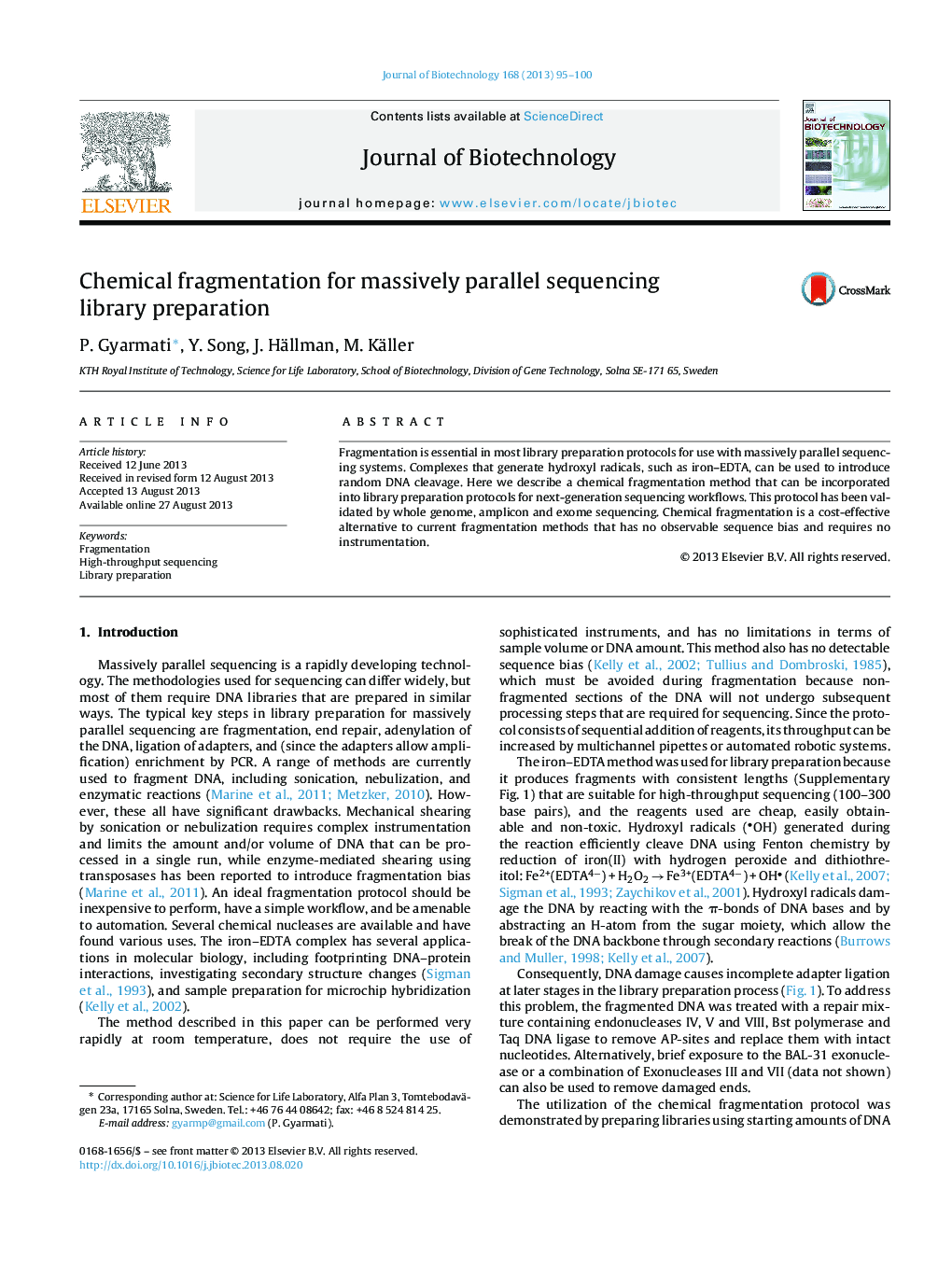| Article ID | Journal | Published Year | Pages | File Type |
|---|---|---|---|---|
| 23287 | Journal of Biotechnology | 2013 | 6 Pages |
•Fragmentation is essential in most library preparation protocols.•A chemical fragmentation method has been adapted to high-throughput sequencing.•Chemical fragmentation resulted in high quality sequencing reads.•Chemical fragmentation is a cost-effective alternative other fragmentation methods.•Presented method has no observable sequence bias and requires no instrumentation.
Fragmentation is essential in most library preparation protocols for use with massively parallel sequencing systems. Complexes that generate hydroxyl radicals, such as iron–EDTA, can be used to introduce random DNA cleavage. Here we describe a chemical fragmentation method that can be incorporated into library preparation protocols for next-generation sequencing workflows. This protocol has been validated by whole genome, amplicon and exome sequencing. Chemical fragmentation is a cost-effective alternative to current fragmentation methods that has no observable sequence bias and requires no instrumentation.
